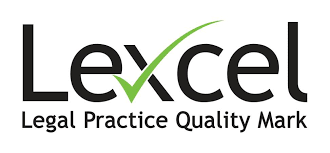
Welsh landlords, there has been a significant overhaul in property legislation. The Renting Homes (Wales) Act 2016, effective since December 1, 2022, has ushered in notable changes that every landlord should be aware of to ensure compliance and effective property management.
The Evolution of Tenancy Agreements:
Gone are the days of traditional tenancy agreements. The Renting Homes (Wales) Act 2016 introduces “Occupation Contracts,” mandating written agreements between landlords and tenants. This shift, accompanied by a six-month grace period for conversion, brings a new dynamic to the landlord-tenant relationship.
Timeline and Phases of Implementation:
Understanding the phased implementation of the Act is crucial. Landlords had six months to serve tenants with written statements outlining rights and responsibilities. Carbon monoxide alarms became mandatory in December 2022, followed by hard-wired smoke alarms in December 2023. Compliance with these regulations is emphasised to landlords.
Key Rights and Responsibilities:
Landlords and tenants alike must pay attention to the changes. Notable provisions include the replacement of Section 21 Notices, increased notice periods, compliance with safety regulations, and both parties being liable for “Breach of Contract.” Legal advice is available to landlords through consultation appointments.
Legal Consequences and Mitigation:
Failure to adhere to the new regulations carries consequences. Landlords may face rent collection restrictions or eviction delays. Mitigating these risks can be achieved through legal consultations and guidance, ensuring landlords are well-versed in compliance.
Impact on Eviction Process:
While the eviction process remains similar to the Housing Act 1988, the Renting Homes (Wales) Act 2016 adds pre-requirements for notice validity. Guidance on navigating the eviction process is crucial to avoid potential pitfalls.
Redefining Rights and Responsibilities:
With tenancies now treated as occupation contracts, both landlords and tenants are on a level playing field. Breaches by either party have legal repercussions, reinforcing the importance of understanding and abiding by the new legislation.
Handling Deposits, Property Inspections, and Disputes:
The Act maintains regulations on deposits, property inspections, and disputes, reminiscent of the Housing Act 1988. Assistance is available to landlords in protecting deposits, navigating property inspections, and resolving disputes through legal advice.
The Renting Homes (Wales) Act 2016 signifies a paradigm shift in Welsh property legislation. Landlords must be proactive in understanding and complying with the new regulations to ensure smooth property management. Consultation appointments with legal experts are available for personalised guidance and assistance in navigating these legislative changes effectively. The Renting Homes (Wales) Act 2016 isn’t just a rulebook – it’s your guide to navigating the complex landscape of property management in Wales. Dive in, stay compliant, and if you find yourself in uncertain waters, our legal expert, Carl Mendoza, is here for you. For any questions or assistance with the topics discussed in this guide, don’t hesitate to contact Carl Mendoza at [email protected] or call on 01685 885500.








